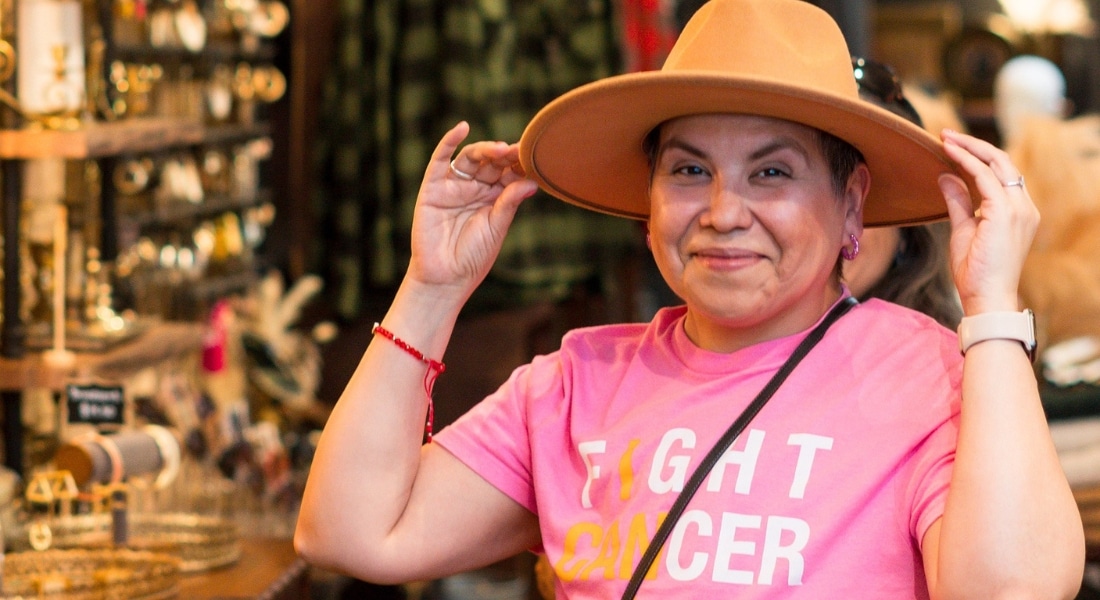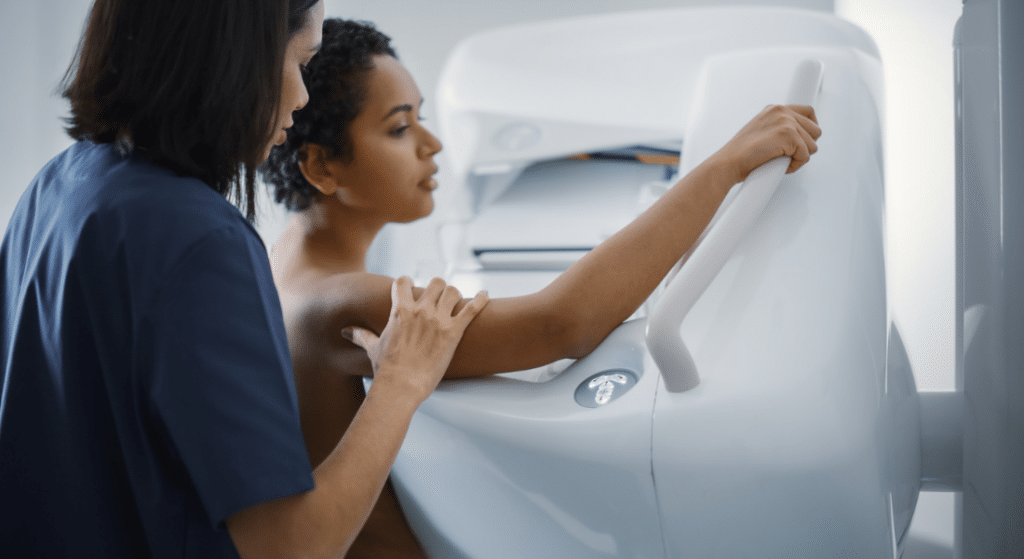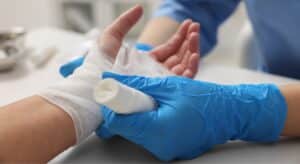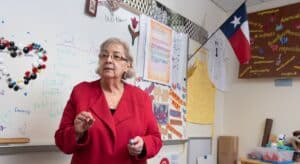Innocente Escamilla was 43 when she found a lump in her breast during her first-ever self-exam — the only symptom she ever had for stage 2 breast cancer.
“I never felt sore. I never felt sick,” she says. “That was the scariest part.”
In November 2022, Innocente tested positive for carrying the BRCA1 gene, raising her risk for both breast and ovarian cancer. She would ultimately have a double mastectomy at Methodist Dallas Medical Center.
“Before then, I had several members of my family pass from cancer,” the Grand Prairie resident says, “so it was always in the back of my head.”
After a mammogram and biopsy, Innocente was referred to the Linda and Mitch Hart Breast Center and Katrina Birdwell, MD, breast surgeon on the medical staff at Methodist Dallas.
“They knew exactly what they were doing. They were very precise,” Innocente says. “I really give a lot of thanks to all the nurses and doctors there that helped.”
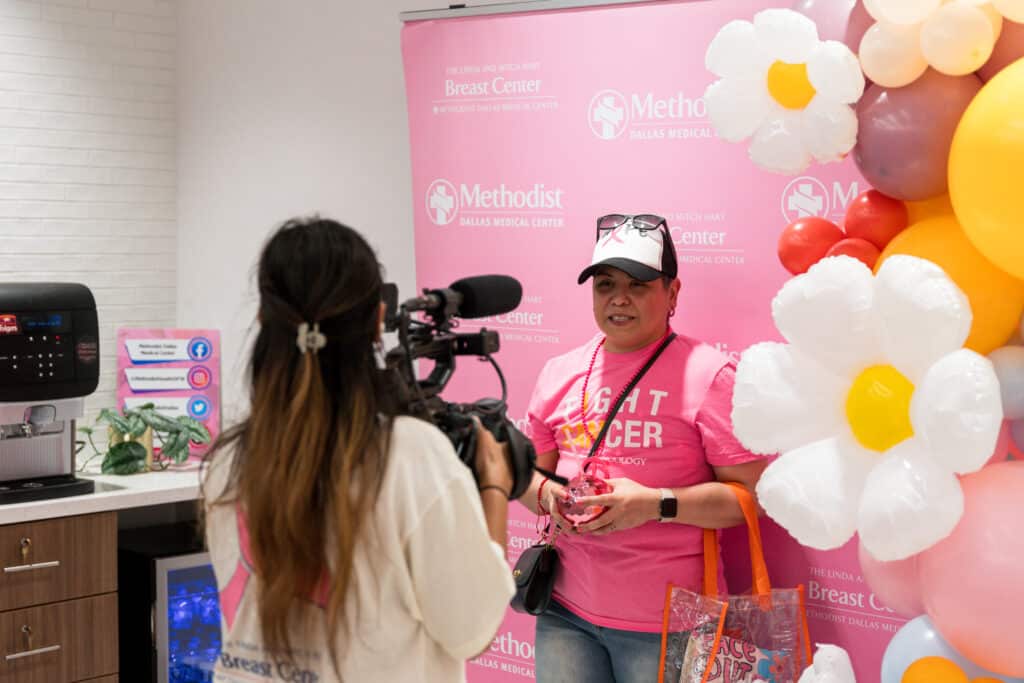
An event dedicated to survivors and raising awareness attracted Innocente back to Methodist Dallas.
MAMMOS AT 40, OR EARLIER
In the months leading up to her diagnosis, Innocente says she was active, hiking and going to the gym often to exercise, and felt otherwise healthy.
Her perspective changed the day she found a lump while performing her very first self-exam in the shower. A few years earlier, when Innocente was 40, her healthcare provider at the time had shrugged off a mammogram, saying she was “too young to worry about it.”
But 40 is the new 50, as far as mammograms are concerned because younger women are increasingly at risk for breast cancer. In fact, in spring 2023, that trend inspired an influential task force to recommend women start getting mammograms at 40.
And women who carry the BRCA1 gene or have other risk factors like a family history of breast cancer should start screening even earlier, Dr. Birdwell says.
“If a woman knows she’s at high risk for breast cancer, she should not wait until 40 to get a mammogram,” she says. “She should get high-risk screening, typically starting at age 30.”
About one in eight American women will be diagnosed with breast cancer, a disease that claims the lives of about 42,000 women every year.
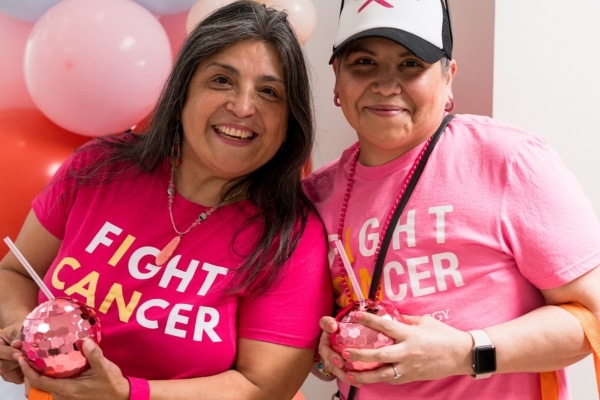
Innocente depends on the support of her sister Monica, who joined the celebration at Methodist Dallas.
PATIENTS ‘FEEL THAT CARING’
Determined not to become a statistic, Innocente embraced the next steps of treatment laid out by her physicians, Dr. Birdwell and Rebecca Yarborough, MD, oncologist on the medical staff at Methodist Dallas.
“Anytime I had questions for either one of them, they knew exactly what to do,” she says.
Although the cancer had already spread to her lymph nodes, Innocente is still young and was otherwise healthy and active, so she could more readily bounce back from her chemotherapy, surgery, and radiation treatments.
“Our younger patients do better with treatment and have a little better resiliency,” Dr. Yarborough says.
The key to preventing breast cancer is managing your risk factors. Take our health risk assessment. Visit MethodistHealthSystem.org
At a nationally accredited Breast Center like Methodist Dallas, the continuum of care is by design, Dr. Birdwell explains, because every care team must work in concert to achieve the best possible outcome, from surgical services to radiology to the oncology staff.
“We have to work comprehensively as a team,” she says. “With all those eyes at the same time, we can permit the highest standard of care.”
Just as important, Dr. Birdwell adds, is the compassion with which the team at Methodist Dallas treats every patient.
“Patients really feel that caring,” she says.
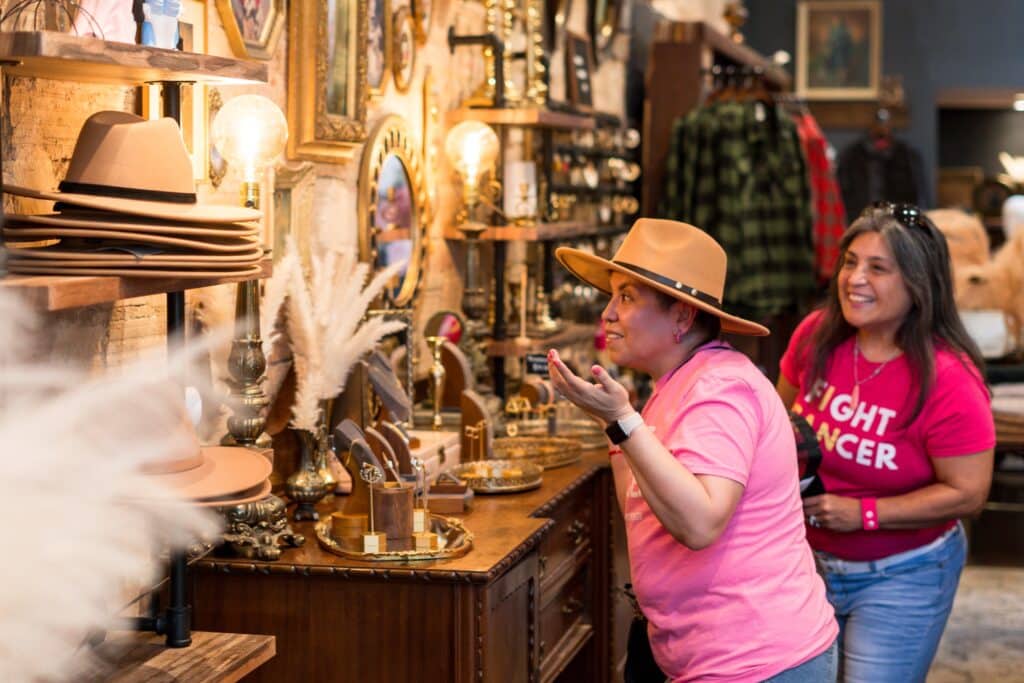
For Innocente, returning to normal meant a shopping trip in Oak Cliff with her sister.
GETTING BACK TO NORMAL
In February, Innocente began six months of chemotherapy, during which she lost her hair and suffered pain in her fingertips — nerve damage known as peripheral neuropathy — that prevented her from working her remote job.
“There was no easy part,” she says, “but it felt good to get back to normal, get healthy again.”
Now cancer-free after the removal of her breasts and several lymph nodes in August, Innocente is getting ready to have a hysterectomy and start radiation to keep the cancer away. She remains thankful for her care and feels her trust in the team at Methodist Dallas was well-placed.
“I trusted in a lot of the doctors because it’s our life we’re putting in their hands,” she says.

